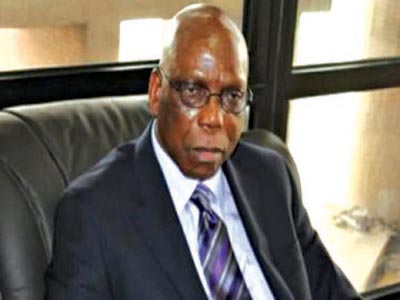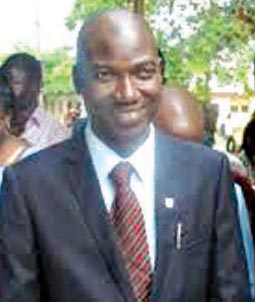
Elections into Students Union Governments (SUGs) in tertiary institutions in Nigeria from the perception and perspective of the ordinary man on the road ought not to be an issue that would attract the attention of leadership of these institutions. This view may hold sway probably in the 1960 and 1970s.
However events in the country’s tertiary institutions since the 1980s, especially SUGs’ elections began to change; a period when military interventions in governance reached its peak, as military administrations at both the federal and state levels; while seeking legitimacy and using the tool of divide and rule began to penetrate the ranks and file of students’ unions and showed interest in the leadership to consolidate their illegitimate interventions.
The story of SUGs’ elections has since moved to a higher but dangerous and even deadly dimension that states governors, states police commands, the State Security Service operatives and the military establishments in the states could no longer sleep and are put on red alerts when students in tertiary institutions in their domains are holding elections.
In the last 10 years, this was almost the story of Adeyemi College of Education, recently up-graded to Adeyemi University of Education.
However the story of the institution changed recently coincidentally with the change in its status when the students’ election successfully held few weeks ago and the outcome accepted by all the stakeholders without the slightest grumbling talk less of protest.
The victory and the joy that followed was not celebrated only by the winners and the university community, but by the entire Ondo Kingdom, the state government, the state police command and the state command of the SSS.
But far more than this, what makes the students’ election more an issue of a far-reaching national importance is that it is now a template for students’ elections across the country and even a model for national elections in the country is the use of electronic voting.
Comments from both the direct and indirect stakeholders in the varsity who had in the past been the beneficiaries of the misfortunes that greeted previous exercise, buttress the record set by the election.

For instance, the former state Commissioner of Police relocated to the campus for days in the last students’ election. He was the one who eventually announced results of the poll after he had deployed men of the Mobile Police Force. The situation was as bad as that then!
The State PRO of the Nigeria Security and Civil Defence Corps, Kayode Balogun and the Divisional Police Officer (DPO), Fagun Ondo, Oluojo Ogunmoyole, in separate interviews with The Guardian both lauded the conduct of the election and declared that it saved them the hectic surveillance deployed to restore peace in past polls.
Ogunmoyole said: “The election is first of its kind, with my experience as a DPO, I have never seen where e-voting was conducted,” stating further that the election started by 8 am and ended as stipulated by 2 pm with a collation of results that took less than one hour.
The Acting Vice Chancellor of the university, Professor Olukoya Ogen, recalled with sadness that one of the major challenges facing universities in the country over the years was the issue of students’ election and the violent unrest that always followed.
His words: “One thing that is uppermost in my mind which I daily prayed to God for is that I don’t want the semester to be disrupted so also is the exams, I want them to be completed without hitches.
“I learnt that in the last eight years, it has been impossible to achieve that here, but glory be to God this feat has been achieved, a record has been made”
Speaking on how the e-voting was conducted the Student Electoral Committee Chairman a 400 level History student Aderemi Kehinde noted: “The election was conducted in a unique way whereby students could vote anywhere using the Internet and even on their mobile phones, without the hurdles and hassles that characterised elections on Nigerian campuses and in the national voting system of the country.
“Students, who could not afford Internet facilities, used the four ICT centres and other designated polling units, equipped with over 2000 pieces of modern computer and Uninterrupted Power Supply (UPS) for better performance, while the agents of the candidates gathered in the central data centre to monitor the votes cast at the voting points as reflected on the monitoring screen.”
For the record, the election took place simultaneously with the writing of the semester examination by students.
The acting vice chancellor revealed that he got the e-voting idea from some foreign universities he had academic relations with.
“I interacted with some of the (foreign) universities I am affiliated with when we were about to start this. I had to travel to see that I get the best, but I discovered it was rather too expensive and the college could not afford it. What we did was to bring private partners who are ready to invest their own money; they have been spending their money and it has been working.
“They will manage it for us for the next three years and after that, we will take over. Part of the arrangement is capacity-building, our own staff has to be trained, and software engineers have to be engaged so that at the end of the three years, we shall be the one handling everything efficiently.”
The Professor said: “It will be very difficult to go back to the old practice as students now register on phone, can pay their fees online, access their course materials online.
“It is an integrated IT solution to everything that we do, next semester; we are going to get every student’s biometric data, which is very important, everything is being digitised, even at the health centre. All we need to get their medical records is to put their fingers on the machine and all their medical records will be displayed.”
Another interesting and remarkable fallout from the electronic voting is that Ogen is now taking advantage of it to get every student to acquire one or two skills in IT which they easily fall on after graduation while seeking employment.
Another fallout is that the IT infrastructure set up in the institution, is already providing some part-time job for some students.
Some principal officers of the university who spoke with The Guardian, commended the innovation. Among them is the institution’s, Public Relations Officer, Olusola Akinfolarin who noted: “The hassles, rancour and violence that marred past elections for the first time in my fifteen years as a staff of the school, has been put in check by the e-voting.”
The Registrar, Eniola Aderinboye, confessed that most of the principal officers were skeptical about such innovation and the possibility of conducting a SUG election at that critical period without disrupting the academic calendar, based on the sour experiences the college went through in the past elections.
The Dean Student Affairs, Olarinoye who marveled at success of the e voting, noted: “For the first time, the Adeyemi is able to surmount the challenges of students’ election. He also revealed that one of the reasons why students’ election in Adeyemi had always been cutthroat was as a result of the vested interest of some political parties in who emerged as the leadership of the institution.




